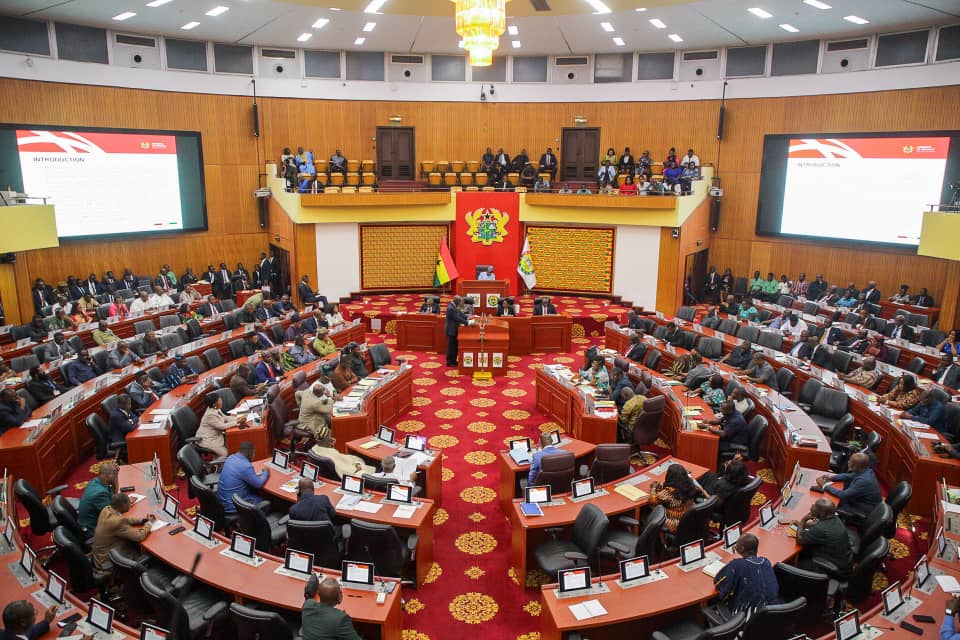By Elsie Appiah-Osei
Accra, Nov. 15, GNA— Parliament on Saturday opened its 2026 post-budget workshop, with a renewed focus on translating national priorities into tangible benefits for citizens.
The workshop, which has become an indispensable component of Parliament’s annual activities, is expected to equip Members of Parliament (MPs) with the necessary knowledge and expertise to effectively scrutinise the budget and ensure it serves the country’s development needs.
“Parliament’s role is to be a robust institution of deliberation, legislation, and rigorous oversight, ensuring the national budget promotes economic independence and aligns with national development aspirations,” said Mr. Alban Bagbin, the Speaker of Parliament.
The three-day workshop, which is on the theme: “Resetting for Growth, Jobs, and Economic Transformation,” will focus on addressing recurring economic challenges, including international financial institution engagements, the external environment, leveraging expert analysis to assess macroeconomic risks, and ensure informed decision-making.
“We must drive Ghana’s economic transformation, serving as a roadmap to self-reliance and a resilient, domestically driven economy,” he said.
According to Mr Bagbin, the Parliamentary Service was strengthening its research capabilities to provide high-level policy analysis and supporting evidence-informed legislation, and members were being encouraged to engage deeply, participate actively, and ask relevant questions to ensure the budget served the needs of Ghanaians.
He noted that the workshop was expected to be a strategic assembly that equipped MPs to pass a budget that genuinely served the progress and prosperity of the Ghanaian people.
The annual post-budget workshop had the primary goal of equipping MPs and senior officers of the parliamentary service with skills required for scrutinizing the Budget and Economic Policy of the Executive arm of government for the 2026 fiscal year.
It also had the objective of providing MPs with insight into the budget and interrogating to provide an effective oversight role that articulated the government’s policies and programmes.
The key expected outcomes would be quality deliberations of the statement on the floor of the House in the ensuing day’s relevant legislation and the ultimate Appropriation Act for the 2026 financial year.
It featured plenary sessions and breakout sessions, covering topics such as the macroeconomic framework, sector-specific details, and taxation and revenue mobilization strategies. Experts led discussions on key areas, including the IMF Programme, public sector debt management, and policy objectives and targets.
It also enriched parliamentary scrutiny of the 2026 Budget Statement and Economic Policy, reinforcing Ghana’s commitment to accountable and responsible governance.
Madam Patricia Appiagyei, the Deputy Minority Leader, speaking on behalf of the Minority Leader, Mr Alexander Kwamena Afenyo-Markin, charged MPs and Parliament to be guardians of fiscal institutions to ensure accountability.
She said, “Together, let’s uphold Parliament’s role as a robust guardian of fiscal institutions, ensuring accountability, transparency, and prudent management of our nation’s resources.”
Mr Kwaku Rickkets-Hagan, the Deputy Majority Leader who spoke on behalf of Mr Mahama Ayariga, the Majority Leader, said the 2026 budget was indeed a call to collective action, challenging MPs to think innovatively about sustainable economic growth, tax base expansion, and effective public service delivery.
He called for collaboration across political divides, committees, and institutions, reminding them that development was a shared national enterprise.
He commended the Speaker and leadership of Parliament for strengthening Parliament’s institutional capacity through continuous training and engagement.
“As we engage in this workshop, let’s remember that the budget is a means to achieve broader goals of growth, stability, and prosperity.
“Let’s work together to transform our discussions into action that moves Ghana forward, with open minds and a shared commitment to improving the lives of our constituents,” he urged.
Mr Thomas Ampem Nyarko, the Deputy Finance Minister who represented Dr Cassiel Ato Baah Forson, the Finance Minister, said the budget builds on Ghana’s progress over the past ten months, including increased Gross Domestic Product (GDP) growth of 6.3 per cent in the first half of 2025, declining inflation of 8 per cent in October 2025, and an improved fiscal position with a primary surplus of 1.6 of GDP by September 2025.
He added that the government’s fiscal strategy focused on raising revenue, rationalizing expenditures, and promoting growth, with a revenue strategy aimed at removing distortions, strengthening compliance, and supporting business growth and fiscal stability.
“Mr Speaker, the 2026 budget statement presented by the Minister for Finance outlines a comprehensive plan to consolidate macroeconomic stability, accelerate economic transformation, and strengthen security and social sectors.
“Key highlights include a projected revenue of 268.1 billion cedis (16.8 per cent of GDP) and expenditure of 302.4 billion cedis (18.9 per cent of GDP), with a financing gap of 64.1 billion cedis (7.7 per cent of GDP),” he said.
According to Mr Ampem Nyarko, fiscal discipline would be ensured if there was the reinforcement of the commitment authorization process, prioritising capital investments, strengthening social protection systems, institutionalizing quarterly expenditure reviews, and real-time audit monitoring.
“Establishing an independent value for money office is also required,” he added.
The Clerk to Parliament, Mr Ebenezer Ahumah Djietror, said, “The Budget Statement and Economic Policy of the Government is one of the most significant policy documents in the governance of the nation… It is a blueprint containing fiscal policy measures that reflects our collective vision, priorities, and aspirations.”
He emphasised the importance of critical engagement, evidence-based analysis, and constructive dialogue in evaluating fiscal policies and revenue projections.
GNA
Edited by Linda Asante Agyei
